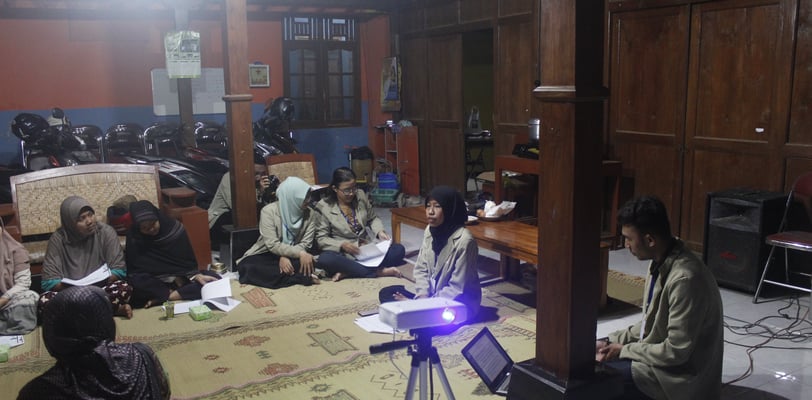Education and Development Program for Emergency Kitchen Cadres in Sompok Village
This project is part of the 50 Days Volunteer project at Sompok Village, Bantul, Yogyakarta with "Post-Disaster Management" as the main theme since Sompok Village is prone to disasters, especially floods and landslides.
Ulfa Ratriana
3/24/20241 min read


Background:
A soup kitchen or emergency kitchen is a place where food service is held and it becomes an important aspect during disaster conditions. Sompok Village has been recognised as a disaster-ready village since the local people have been equipped by BAZNAS and the local government with knowledge and skills in response to a disaster. Therefore, Sompok Village already has soup kitchen cadres. A soup kitchen has also been established several times when flood disasters occurred there. However, it is necessary to increase the readiness of soup kitchen cadres in organising emergency kitchens.
Target Audience:
Soup kitchen cadres in Sompok Village.
Project Delivery:
The education and development program for soup kitchen cadres took place on July 21st 2019, at Mr Hardono's pavilion as the Head of Sompok Village. To deliver this project, I invited the head of the soup kitchen cadres and all general cadres. A total of 30 soup kitchen cadres were present. This project was carried out by presenting material and followed by a Q&A session. I saw high enthusiasm from general cadres in participating in this activity. This can be seen from the attendance rate which exceeds 80%.
Project Delivery:
There was no rigorous evaluation conducted for this project. However, from the discussion and Q&A session, I could see that soup kitchen cadres already had sufficient knowledge to run an emergency kitchen. Armed with experience, I also saw that they were ready to organise a soup kitchen whenever they needed it, even though it was not as ideal as the kitchens that are usually set up by the Social Service and others. However, this is quite understandable because the implementation of independent soup kitchens from the community often only utilises existing resources in the community. During the education process, I also saw that the cadres had acquired quite a lot of new knowledge. This can be seen from the various questions and discussions formed during the Q&A session.
